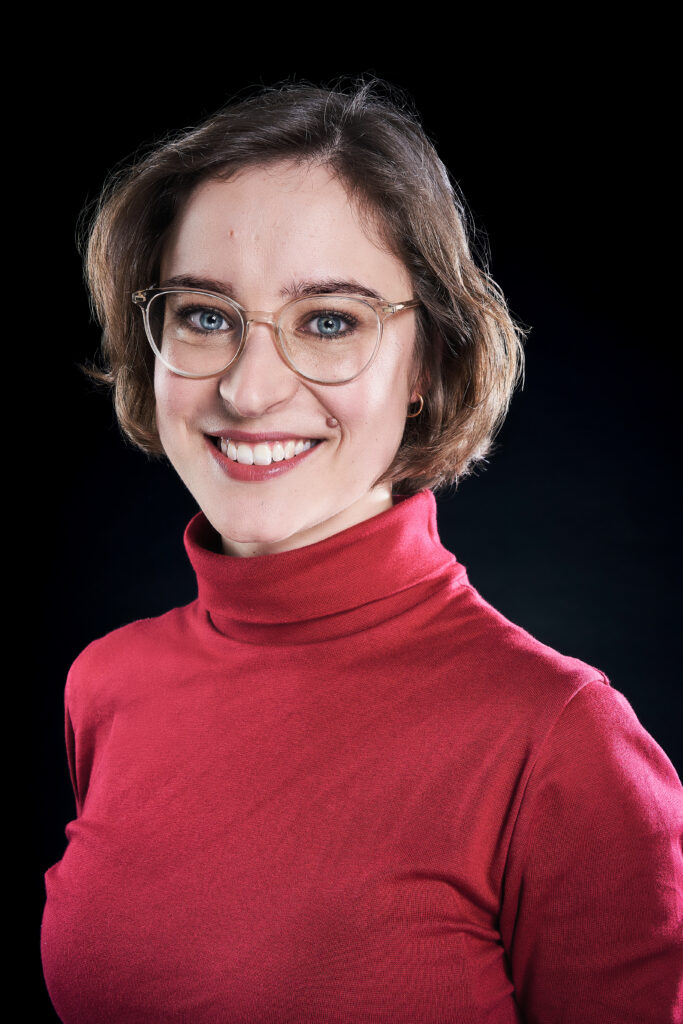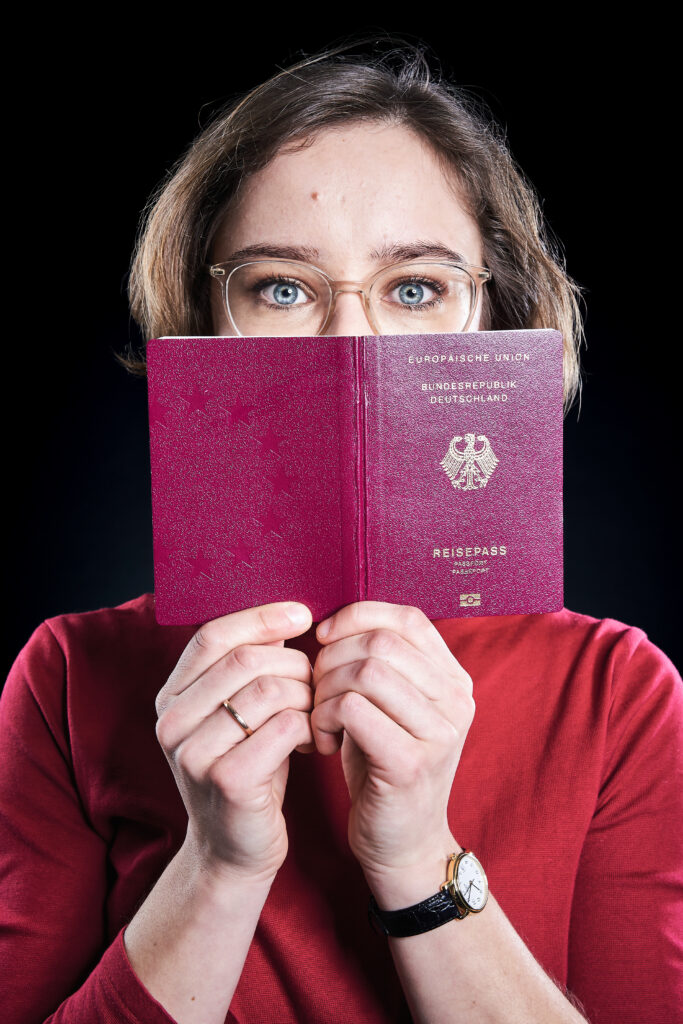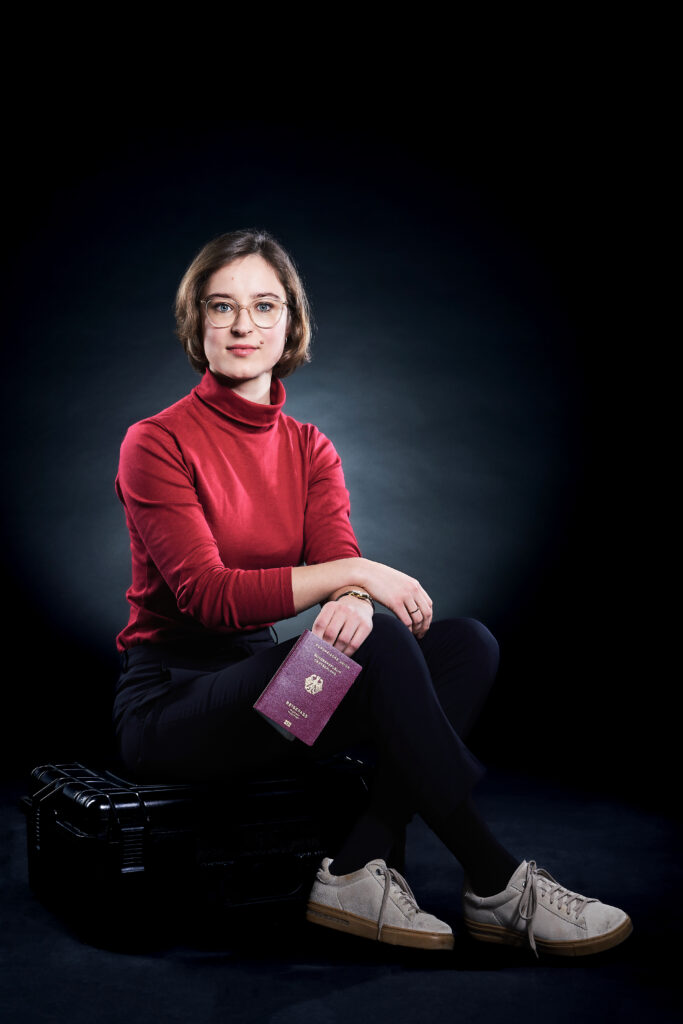Zwischen Feldforschung und akademischem Alltag: Dr. Julia Gurol-Haller im Portrait

Frühjahr 2023, Katar. Das Emirat, welches – bis zum letzten Dezember – so große, weitreichende Beachtung fand: Die Fußball-WM der Männer am Persischen Golf warf lange Schatten voraus, auf ein Land ohne Fußballkultur, auf ein winziges Land, welches seine riesigen Schätze und seinen wachsenden Einfluss als Faustpfand in der Welt einzusetzen versucht. Was ist geblieben von den angeblichen Veränderungen? Die Politikwissenschaftlerin Dr. Julia Gurol-Haller wird dem auf den Grund gehen und dabei auch an die denken, mit denen sie vielleicht überhaupt nicht in Kontakt treten können wird: Es sind die Frauen*, die Marginalisierten und Stimmlosen, die ihre Forschung an der Universität Freiburg antreiben. Sie gibt sich mit dem Erreichten nicht zufrieden und verkörpert handfeste Arbeit für Gleichstellung aller Wissenschaftler*innen. Ihre Forschungen fokussieren sich auf Autoritarismus, Infrastruktur und Konnektivität mit dem regionalen Fokus auf China und der arabischen Golfregion. Dabei nimmt sie immer wieder koloniale Kontinuitäten, epistemische Gewalt und Asymmetrie in der Wissensproduktion wahr – Problemfelder, die sie aus eigener Forschungserfahrung bestens kennt.
Gurol-Haller kann bereits eine beachtliche Forschungshistorie vorweisen und ist seit dem vergangenen Sommer für fünf Jahre in den elitären Kreis der Jungen Akademie der Leopoldina berufen worden; ein Ritter*innenschlag für sie, ein Nachweis ihrer außerordentlichen Leistungen auf ihrem Gebiet. „Wir können die sozialen Gegebenheiten und Strukturen des Wissenschaftssystems auch verändern“, sagt sie. Das zeigt sich in ihrem Handeln und Auftreten. Gegen strukturelle Ungerechtigkeiten in allen Bereichen des universitären Lebens vorzugehen ist ihr wichtig: in ihrer Lehre setzt sie darauf, die Forschungserfahrungen aus dem Feld in autoritären, patriarchalischen Kontexten in China, oder im Nahen Osten so einzubringen, dass ihre Studierenden selbst zu reflektierten Forschenden heranwachsen. „Wenn ich Hausarbeiten und Essays lese“, so Gurol-Haller, „und vorwiegend weiße, europäische oder amerikanische Autoren zitiert werden, zeigt mir das, das wir bis zu einem inklusiven, globalen Wissenssystem noch einen langen Weg gehen müssen.“ – Auf solche, oft subtile, Unterrepräsentation und systemische Benachteiligung akademischer Frauen* oder Forschenden aus dem sogenannten Globalen Süden hinzuweisen, ist ihr ein zentrales Anliegen.
Im Nachdenken über die eigene Position, über ihre Ziele in Forschung und Lehre, ist sie auch menschlich gewachsen. Die Debatte um gendersensible Sprache ist für sie ein Brennglas auf soziale und gesellschaftliche Spannungen, denn als Frau* Benachteiligung zu erfahren, kommt immer wieder vor. Eine akademische Laufbahn wie die Gurol-Hallers ist eines der Beispiele, wie nicht-männliche Talente in der Wissenschaft entgegen aller systemischer Hindernissen ihren Weg machen. Entgegen oder gerade aufgrund aller Widerstände? „Ich persönliche habe auch Motivation daraus gezogen, mich für mehr Chancengleichheit im Wissenschaftssystem einzusetzen “, sagt sie. Dazu brauche es auch den Einsatz und die Unterstützung feministischer Männer. Denn nicht immer ist sie in ihrer Karriere oder in der Forschung nur auf Männer gestoßen, die an Gleichstellung interessiert waren. Noch immer nehmen einige arrivierte Wissenschaftler ihre aufstrebenden, weiblichen Kolleginnen nicht ernst. Sie schaden damit nicht nur sich selbst, sondern dem Wissenschaftsbetrieb als Ganzes. Julia Gurol-Haller kennt dies aus der akademischen Arbeit wie aus der Feldforschung gut: ihre erste Forschungsreise in den Libanon konfrontierte sie mit der harten Realität offen patriarchalisch geprägter Gesellschaften. Wenn sie darüber spricht, spürt man Begeisterung im Raum, eine unbedingte Motivation, auch dort als Frau zu forschen; soziale Räume neu zu mischen und einen völlig anderen Blick auf diese Wirklichkeiten abzubilden. Das alles steht für sie im Kontext globaler Asymmetrien in der Wissensproduktion Ihren reichen Erfahrungsschatz bringt sie auch in ihre Lehre ein. In ihren Seminaren zeigt Gurol stets auf, wie Unterdrückung, Marginalisierung und Ungleichheiten aufzulösen die Aufgabe derer ist, die nicht direkt unter diesen leiden. „Ein ungleich und einseitig produziertes Wissen ist heute wie gestern nicht in der Lage, die gesellschaftlichen Probleme und Entwicklungen adäquat abzubilden und zu beforschen“. Dafür diese Strukturen aufzulösen steht Julia Gurol-Haller mit ihrem kontinuierlichen Engagement. Das wird deutlich, wenn sie von den Erfahrungen ihrer Wissenschaftskolleginnen erzählt, von anderen Frauen*, die dieselben Hindernisse erklimmen mussten. „Unsere Studierenden sind oftmals sehr aufmerksam gegenüber Diskriminierung. Das ist eine positive Entwicklung“, sagt sie. Ihnen die Chancen einzuräumen, die alle haben sollten, das ist eines ihrer zentralen Anliegen, damit in einigen Jahren ganz selbstverständlich Frauen, Mütter, trans* Personen und Non-Binäre überall Platz neben den Männern in der Wissenschaft finden und selbstverständlich einfordern. Wenn sie demnächst aus Katar wieder ein Puzzleteil dieses Mosaiks zurückbringt, wird sie neue Erfahrungen gesammelt haben, von denen in Freiburg Studierende profitieren können.


Portrait von Jona Ebert
Jona Ebert studiert Politikwissenschaft und Kulturanthropologie im 3. Semester. Nachdem er unweit von Stuttgart aufwuchs, zog es ihn im Herbst 2021 nach Freiburg. Das Schreiben über Politik und das Nachdenken über die Wege einer guten solchen bestimmt sein Interesse im und um das Studium herum. Einen Weg in den Journalismus kann er sich im Moment gut vorstellen.